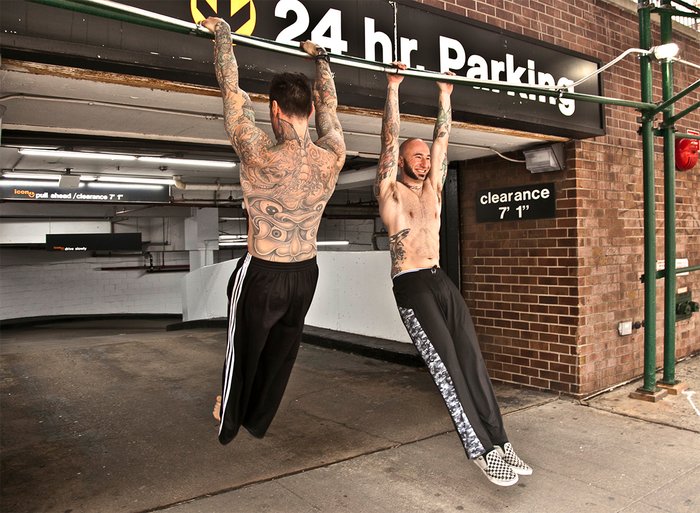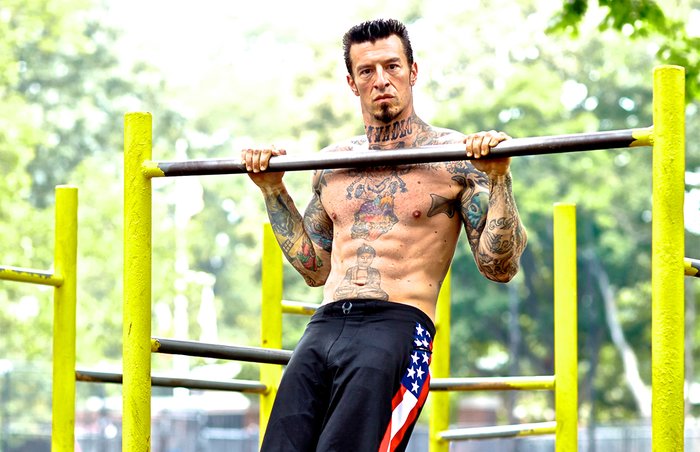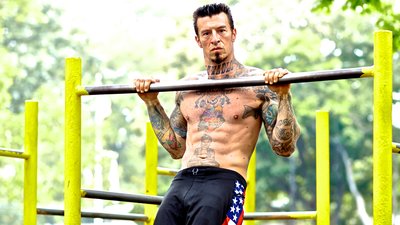Grip strength is about as foundational as strength gets. You can’t lift anything heavy, move your body around a bar, or even do ordinary day-to-day tasks without a decent baseline.
Fortunately, the power to grip is built into us. As all parents are aware, newborn babies can do little more than suck and grip. That’s right; even in our earliest phase of life, this physical predisposition to grabbing is of equal biological importance to feeding. Mother Nature, in her infinite splendor, has rendered us ready to grip, even before we can roll over or lift up our own heads. It’s that important.
Recently, however, scientific research has found that the human grip has been getting weaker. The reason why is no surprise: We don't use it! Most of us don't climb trees, hunt big game, carry our food and water, or work in the fields for hours on end. Our hand strength has regressed simply because we allowed it to.
So what do we do to get it back? There is an abundance of grip training equipment and techniques available to us. But in my book, none can rival the noble pull-up bar. Grab a bar and try these exercises and drills that will fire up the grip strength you've lost over time.
Bar Hang
A basic, relaxed bar hang is a great place to start. All primates do it, and baby, you and me ain't nothing but mammals!
Simply grab an overhead bar tightly, using an overhand grip, and hang. The purpose of this drill is to introduce your physiology to the mechanics of hanging and the only body parts explicitly targeted are your hands and forearms, so feel free to let the rest of your body loosen up. Allowing your shoulders to open and your spine to lengthen provides an excellent stretch.

While you hang, focus on your fingers and pay attention to the subtleties, including the feel of the bar and any tendency for your body to sway. It’s best to avoid swinging in the remedial exercise, as you want to become comfortable countering gravity, without adding any motion to it. Only once you feel comfortable hanging should you start to incorporate motion.
Active Bar Hang
The next step is to add tension to the exercise. Rather than allowing the body to lengthen and stretch, we encourage maximum muscular recruitment in this variation.
Begin by grabbing the bar hard using an overhand grip. Tense all your muscles to initiate full-body tension—even your abs, legs, and glutes. It is important to keep your shoulder blades down and back, with your chest up. This scapular retraction will help you get the full postural and strength benefits of the active hang.

Though your hands, forearms, and fingers obviously do a lot of the work here, you're also training your entire body to act as a cohesive unit. If you're a calisthenics fanatic, you already know that full-body muscular coordination is key to advanced moves like the human flag, but also just to building your best calisthenics body.
Odd Surface Hang
When doing bar hangs—as well as pull-ups and all other bar exercises—there is no doubt that the surface you choose to grasp makes a difference.
The thicker the bar, the harder you have to work. Furthermore, hanging from ledges, scaffolding and other structures can provide an even greater yield. Towel hangs, rock walls, and climbing grips fall into this category as well.

In the wild world of street workout any surface is fair game, so be prepared to get creative and build serious strength in the process!
One-Arm Hang
This exercise is virtually impossible to perform for very long without a solid baseline in grip strength. But if you have advanced hanging or pulling goals like, say, a one-arm pull-up, it's an essential part of the progression.
Start out by hanging from the bar with both arms. As with the active hang, use an overhand grip, keep your shoulders packed, and activate every muscle in your body. Now remove one hand from the bar and bring your arm to your side, all the while maintaining tension. Again, be aware that forearms, shoulders, lats, abs, and glutes play bigger roles than you might expect in this variant.

The goal is to keep your body extended and your shoulders packed without twisting, turning, or swinging. Make sure to train both sides evenly.
Flex Hang
Essentially the top position of a pull-up, a flex hang can be executed from either an overhand, underhand, or mixed grip. Begin by standing on an elevated surface in front of a pull-up bar and grabbing it tightly, hugging it toward your chest. Now, with your chin above the bar, tense your grip and carefully step your feet off of the surface, maintaining a flexed-arm position.
It will help build strength across the board to lower yourself down from the flex-arm position as slowly as possible when you dismount the bar. This is sometimes referred to as a “negative” pull-up, and it is one of the best ways to build up to your first pull-up, if that's your goal.

However, the flex hang is more than just a pull-up tool. It's also a first class way to add time under tension to your bar training, which can help build both strength and muscle.
Monkey Bars
Climbing across monkey bars is one of the most spectacular ways you can train your hanging powers and unlock your genetic potential. Not only does the act of removing one hand at a time while moving from bar to bar give you a taste of the one-handed grip, it also incorporates a dynamic movement and increases overall muscular recruitment.
Remember how I recommended eliminating the swing when performing a standard bar hang? Well, this time we want to embrace it. Try to climb across the bars in rhythm with the natural twists and turns of your body.

It's essential to note that hang time and overall performance for all of these exercises will vary greatly from person to person, so it is important to respect your current fitness level. Our species did not become deconditioned overnight, so don't expect an instant fix in your grip strength if it is not yet where you’d like it to be. All things take time.
Be diligent, work hard, and embrace consistency rather than intensity. It can even be fun to bring in a workout buddy for some of these exercises. Everyone loves a good old-fashioned hanging contest!
If there are any hanging drills that you’ve found helpful, please let me know in the comments below. Let’s get strong!

